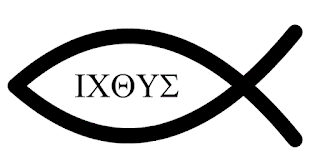Tame and Wild Animals
Some animals are tame, such as the bull, the donkey, and the like, while others are wild and live off in the wild. People plow fields with tame animals, and as a result people are nourished, together with animals, whether tame or wild.
So also the perfect human plows with powers that are tame and prepares everything to come into being. Thus the whole place has stability, good and evil, right and left. The holy spirit tends everything and rules over [all] the powers, whether tame or wild and running loose. For the spirit is [resolved] to corral them, so that they cannot escape even if [they] wish.
There are domestic animals, like the bull and the ass and others of this kind [hard working researchers of the Word who are stuck on intellectualizing the “letter” and not able to discern the “spirit” of the word – they are easily domesticated by the subjective influence of “world” religions and are “never able to come to an accurate knowledge of the Truth”]. Others are wild and live apart in the deserts [those who are non-conformists with regard to the Babylonian (world’s religions) view and find themselves in a spiritual wilderness (hungry and thirsty for truth) yet cannot get past their fleshly desires]. Man ploughs the field [the world] by means of the domestic animals [goes from sect to sect and ideology to ideology seeking if any have the truth], and from this he is nourished, he and the animals, whether tame or wild [they all have a trace of truth in them and everyone benefits from sharing and exchanging ideas of what we have learned with one another]. Compare the perfect man [Messiah]. It is through powers which are submissive [those humble and contrite individual spirits who say in their hearts; “not my will but yours”] that he ploughs [he is cultivating the hearts of any who are considered “fine soil” (faithful and pure in heart)], preparing for everything to come into being [through planting of the seed of Christ in them that they too might mature and be perfected in spirit and in truth as sons]. For it is because of this that the whole place stands [“ask me concerning my sons” – this is why we are here and the whole reason why the earth (womb) was created], whether the good or the evil, the right and the left [these are all necessary components to accomplishing His will in bringing forth sons]. The Holy Spirit shepherds everyone and rules all the powers [in other words this whole operation is not only ordained of God but carefully directed by Him in order to accomplish His ultimate goal which is to become all in all in perfect love and peace for His universal spirit can only tend towards good no matter what the individual spirit does in opposition to it], the "tame" ones [domesticated by the world’s religious systems (Babylon)] and the "wild" ones [the independent thinkers who are still in a spiritual wilderness], as well as those which are unique [the “elect” who after diligent searching have found some of that “hidden treasure”, the deep spiritual understandings in the Word]. For indeed he ..who has been given all authority.. shuts them in, in order that [..according to His..] wish, they will not be able to escape. (Philip 29) [in other words “whatever is my delight I shall do”]!
Some animals are domesticated, while others are wild. Humans use domestic animals for plowing their fields, which produce food for themselves, their domestic animals, and the wild animals who graze in them. It is the same with Divine Anthropos. The angels of Light, which are submissive to them, assist them in cultivating the mortal realm. Through them are produced the means of sustenance for beings of Light and beings of darkness, as well as mortals. Every being of Light and darkness is dependent on the Divine Ones for sustenance. All are shepherded by the Holy Spirit, which governs all the powers, those which are "domesticated" and those which are "wild." Mortals also are governed by the Holy Spirit, although they are neither domesticated nor wild until they choose one condition or the other. It is not that we are unable to act freely, but the Holy Spirit is able to act in relation to us so that everything happens for good in the final analysis.


